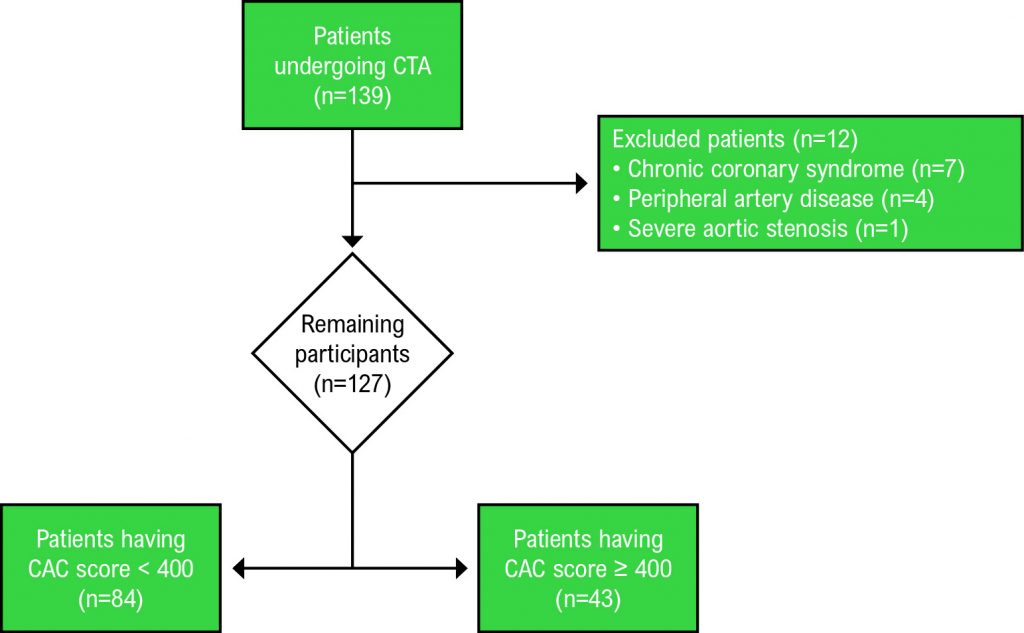Arq. Bras. Cardiol. 2022; 119(3): 436-445
The Association of TWEAK with Coronary Artery Calcification in Patients with Chronic Kidney Disease
This Original Article is referred by the Short Editorial "Should We “Tweak” Our Approach to Coronary Artery Disease?".
Abstract
Background
The soluble tumor necrosis factor-like weak inducer of apoptosis (sTWEAK) is a member of the TNF superfamily that plays a critical role in proliferation and inflammation in the arterial circulation.
Objectives
This prospective study aimed to show the relationship between the sTWEAK levels and coronary artery calcification (CAC) in patients with chronic kidney disease (CKD).
Methods
This prospective study included 139 consecutive patients undergoing computed coronary angiography for any reason except for acute coronary syndromes from August 2020 to February 2021. A total of 12 patients were excluded from the study due to exclusion criteria. Patients were divided into two groups with regard to having a CAC score of less than 400 (n=84) and 400 or more (n=43). Significance was assumed at a 2-sided p<0.05.
Results
As the CAC score increased, sTWEAK levels presented a statistically significant decrease, and a strong relationship between sTWEAK levels and the CAC score (r: -0.779, p<0.001) was observed. The ROC analysis revealed that the optimal cut-off level of sTWEAK for predicting the CAC score of 400 was 761 pg/mL with a sensitivity of 71% and a specificity of 73% (AUC: 0.78; 95% CI:0.70-0.85; p < 0.001)
Conclusions
Even though the large-scale studies showed a positive correlation between eGFR and the sTWEAK levels, some studies found the increased sTWEAK levels to be associated with mortality and the severity of the coronary artery system in patients with CKD. Our results support our hypothesis that the sTWEAK level shows coronary calcification rather than other types of atherosclerotic plaques.
614

